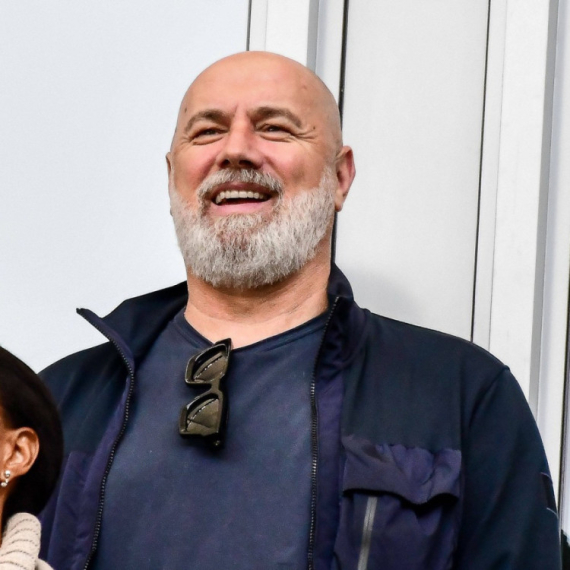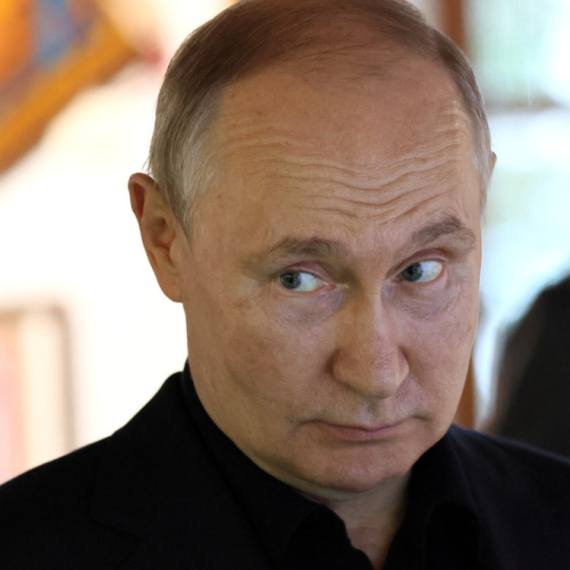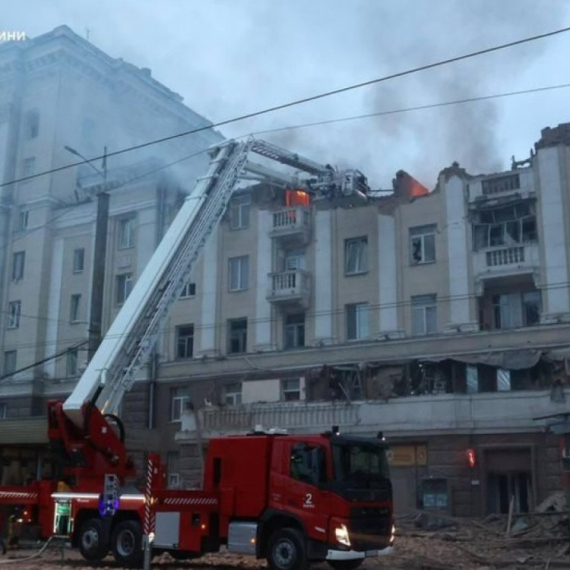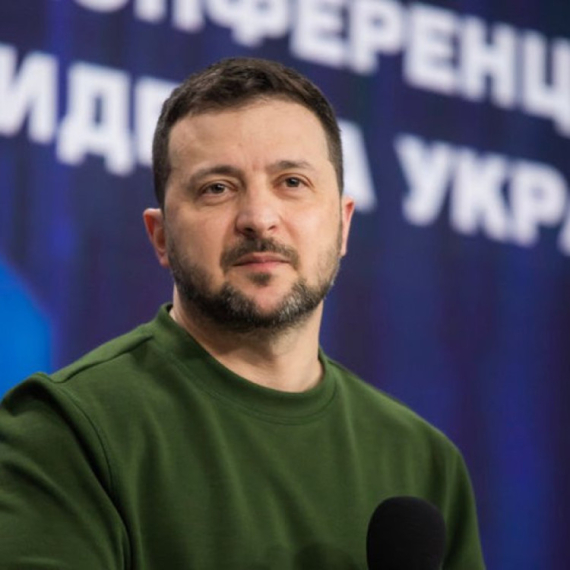10 years since fall of Milošević regime
Today marks ten years since the fall of Slobodan Milošević's regime, brought about by demonstrations staged on October 5, 2000.
Tuesday, 05.10.2010.
09:21

Today marks ten years since the fall of Slobodan Milosevic's regime, brought about by demonstrations staged on October 5, 2000. An estimated half a million people from all over Serbia took to the streets that day to protest, led by the 18-party opposition coalition dubbed DOS (the Democratic Opposition of Serbia), in a bid to force Milosevic to concede his defeat in the presidential elections held on September 24, 2000. 10 years since fall of Milosevic regime DSS party leader and DOS candidate Vojislav Kostunica had won that election. In the first round, he received 50.24 percent of votes, but the Federal Election Commission, pressured by Milosevic, at the time Yugoslav president, said that Kostunica had won 48 percent and announced a runoff. DOS decided to organize daily protests and road blocks their reaction to an attempted rigging of election results, and force Milosevic to concede and step down. The election commission said it would announce the exact results on October 5. DOS scheduled a big rally in Belgrade for that day. Protesters entered the federal parliament building in the late afternoon, after police prevented them from doing so earlier in the day, and later they were also inside the state broadcaster RTS premises. After a disruption, RTS continued broadcasting with the message, "This is the program of the new RTS". A while later, DOS leaders announced that the presidential election had been won, thanks to the massive protest of citizens. After the meeting with Kostunica on October 6, Milosevic addressed the citizens via a private Belgrade TV station and admitted his defeat at the presidential elections. He congratulated Kostunica on his victory. Milosevic was arrested on April 1, 2001 and extradited to the Hague Tribunal on June 28, where he died in detention in March 2006, before his trial was completed. (FoNet, file) EU congratulates The European Union (EU) has congratulated Serbia the 10th anniversary of democratic changes that took place on October 5, 2000, while the office of High Representative for Foreign Affairs and Security Policy Catherine Ashton stated that the EU will continue to support Serbia on its EU path, in both political and economic sense. On the occasion of the 10th anniversary of democratic changes, we would like to congratulate the citizens of Serbia on the progress they have made in view of democratic reforms and improvement of economic situation, Ashton's spokesperson Maja Kocijancic stated for the Cologne-based broadcaster Deutsche Welle. According to her, all these changes laid the foundations of Serbia's EU integration process. We are aware that this process is lengthy and not easy, but it is the one which will bring real and concrete changes to the citizens, Kocijancic said. Chairman of the European Parliament's Delegation for South East Europe Eduard Kukan believes that Serbia has done a lot in the previous ten years, but that it could have done more. Serbia has done a lot in the previous ten years given that it has managed to achieve the position of a future candidate for the EU membership. The country has had difficulties and problems on the way, but now it is accepted by the international community as a future EU member, and that is quite an achievement, Kukan stated for Deutsche Welle. He stated that the complicated situation in the country's internal policy prevented Serbia from making even better results, and took an example of the Kosovo issue as one of the chief obstacles. Serbia's place among nations U.S. Ambassador to Serbia Mary Warlick estimated that Serbia today, 10 years after the democratic changes, is on the road towards integration into European and Western institutions in order to take the place it deserves among other democratic and progressive nations of the world. We see the day when Serbia will be a force of stability in the Balkans and the leader of regional cooperation, underlined Warlick in an article published in the Belgrade daily Politika. We see a Serbia which is equal to its American and European partners at the table, which tackles regional and global problems and assists in finding political, economic and scientific solutions. We see the day in the not so distant future when the promises made on October 5 will be finally fulfilled, the ambassador underscored. I believe that Serbia will manage to reach all the goals that will bring greater stability, safety and prosperity to Serbia and to the whole region, Warlick concluded.
10 years since fall of Milošević regime
DSS party leader and DOS candidate Vojislav Koštunica had won that election. In the first round, he received 50.24 percent of votes, but the Federal Election Commission, pressured by Milošević, at the time Yugoslav president, said that Koštunica had won 48 percent and announced a runoff.DOS decided to organize daily protests and road blocks their reaction to an attempted rigging of election results, and force Milošević to concede and step down.
The election commission said it would announce the exact results on October 5. DOS scheduled a big rally in Belgrade for that day.
Protesters entered the federal parliament building in the late afternoon, after police prevented them from doing so earlier in the day, and later they were also inside the state broadcaster RTS premises.
After a disruption, RTS continued broadcasting with the message, "This is the program of the new RTS".
A while later, DOS leaders announced that the presidential election had been won, thanks to the massive protest of citizens.
After the meeting with Koštunica on October 6, Milošević addressed the citizens via a private Belgrade TV station and admitted his defeat at the presidential elections.
He congratulated Koštunica on his victory.
Milošević was arrested on April 1, 2001 and extradited to the Hague Tribunal on June 28, where he died in detention in March 2006, before his trial was completed.
EU congratulates
The European Union (EU) has congratulated Serbia the 10th anniversary of democratic changes that took place on October 5, 2000, while the office of High Representative for Foreign Affairs and Security Policy Catherine Ashton stated that the EU will continue to support Serbia on its EU path, in both political and economic sense.On the occasion of the 10th anniversary of democratic changes, we would like to congratulate the citizens of Serbia on the progress they have made in view of democratic reforms and improvement of economic situation, Ashton's spokesperson Maja Kocijancic stated for the Cologne-based broadcaster Deutsche Welle.
According to her, all these changes laid the foundations of Serbia's EU integration process.
We are aware that this process is lengthy and not easy, but it is the one which will bring real and concrete changes to the citizens, Kocijancic said.
Chairman of the European Parliament's Delegation for South East Europe Eduard Kukan believes that Serbia has done a lot in the previous ten years, but that it could have done more.
Serbia has done a lot in the previous ten years given that it has managed to achieve the position of a future candidate for the EU membership. The country has had difficulties and problems on the way, but now it is accepted by the international community as a future EU member, and that is quite an achievement, Kukan stated for Deutsche Welle.
He stated that the complicated situation in the country's internal policy prevented Serbia from making even better results, and took an example of the Kosovo issue as one of the chief obstacles.
Serbia's place among nations
U.S. Ambassador to Serbia Mary Warlick estimated that Serbia today, 10 years after the democratic changes, is on the road towards integration into European and Western institutions in order to take the place it deserves among other democratic and progressive nations of the world.We see the day when Serbia will be a force of stability in the Balkans and the leader of regional cooperation, underlined Warlick in an article published in the Belgrade daily Politika.
We see a Serbia which is equal to its American and European partners at the table, which tackles regional and global problems and assists in finding political, economic and scientific solutions.
We see the day in the not so distant future when the promises made on October 5 will be finally fulfilled, the ambassador underscored.
I believe that Serbia will manage to reach all the goals that will bring greater stability, safety and prosperity to Serbia and to the whole region, Warlick concluded.


























Komentari 38
Pogledaj komentare